Health
Mak School of Public Health, Ministry of Health to Conduct National Mental Health Integration Study
Published
2 years agoon
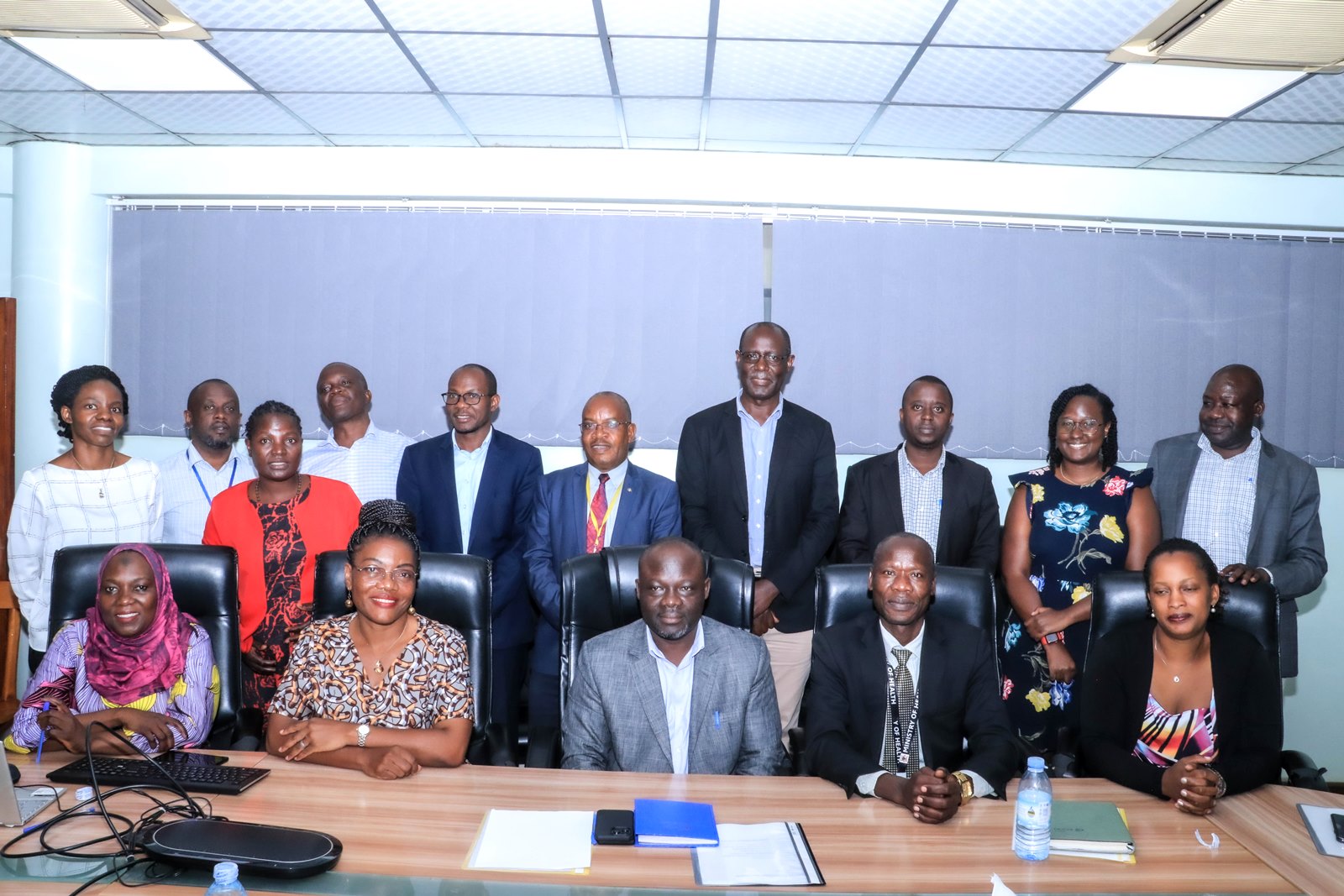
As mental health gains recognition as a critical aspect of overall well-being, a pioneering study is set to delve into its integration in schools, communities and healthcare units across Uganda.
With funding from the World Bank, this landmark study titled; “Assessing the Extent of Integration of Mental Health Services into Primary Healthcare, Community and Schools” will focus on four purposively selected districts in Uganda – Adjumani in the Northern region, Bushenyi in Western Uganda, Kapchorwa in Eastern Uganda, and Butambala in Central Uganda.
With the potential to revolutionize mental health practices in schools, this study will through rigorous research and analysis shed light on the implementation and impact of mental health integration initiatives in schools, uncovering new insights that could shape policies and practices for generations to come.
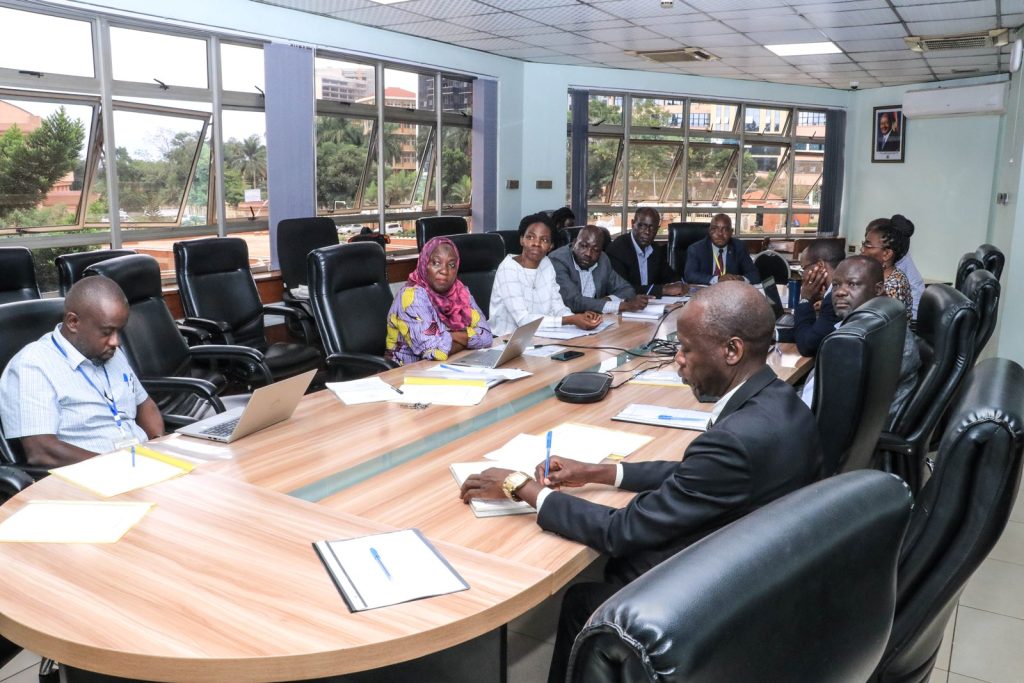
Latest data from the international Burden of Disease Study indicates that mental illness and substance use disorders account for 3.35% of the total disease burden in Uganda. According to the latest WHO data, at least 7.4% of Ugandans are affected by common mental disorders particularly depression, anxiety and alcohol use disorders.
Comparable to high-income countries, depression and generalized anxiety disorders in Uganda, are prevalent at 5.3% and 4.1% respectively. Uganda ranks among the top five countries globally with the highest depression prevalence. Poverty, HIV infection, disasters, and adverse environmental conditions are factors that increase the risk and consequence of mental health conditions in Uganda.
It is against this background that the World Bank Group solicited for consultancy services for a nation-wide study to assess the extent of integration of mental health services into primary healthcare, schools and communities.
Dr. Juliet Nakku, Senior Consultant Psychiatrist and Executive Director of Butabika National Referral Mental Hospital, during an inception meeting of mental health stakeholders on April 13, stated that the study will reveal the prevalence and types of mental health issues in these settings and their impact on community well-being.
This study that will be conducted by a team of mental health experts from the Ministry of Health and Makerere University School of Public Health. This study will assess the availability, access, and quality of mental health services in PHC, communities, and schools.
The study’s Principal Investigator Dr. Nakku further emphasized that the research will assess existing services, identify gaps/barriers, and explore opportunities/challenges in integrating mental health into primary healthcare and schools. This will involve examining policies, resources, support systems, and obstacles to integration.
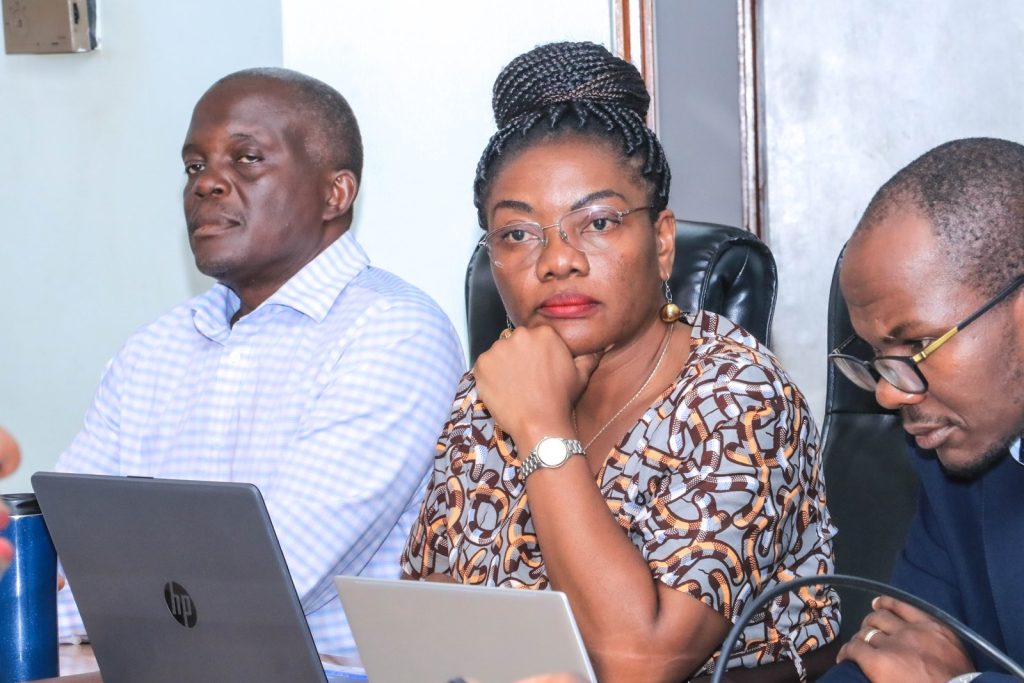
Over the last 20 years, Uganda has taken measures to enhance its healthcare system and promote better health outcomes for its population. In 1996, the government-initiated efforts to integrate mental health into primary healthcare, providing training for general healthcare workers to identify and address common mental health disorders.
Dr. Hafsa Lukwata, Assistant Commissioner for NCDs and Mental Health at the Ministry of Health, emphasizes that there is increased risk of mental health problems among specific sub-populations, including children, the elderly, refugees, and individuals in uniform.
Dr. Lukwata asserts that the government is addressing mental health through policies that highlight its importance as a fundamental component of health at all care levels. These policies promote decentralization, integration of evidence-based services, and partnerships to increase mental health knowledge and service provision.
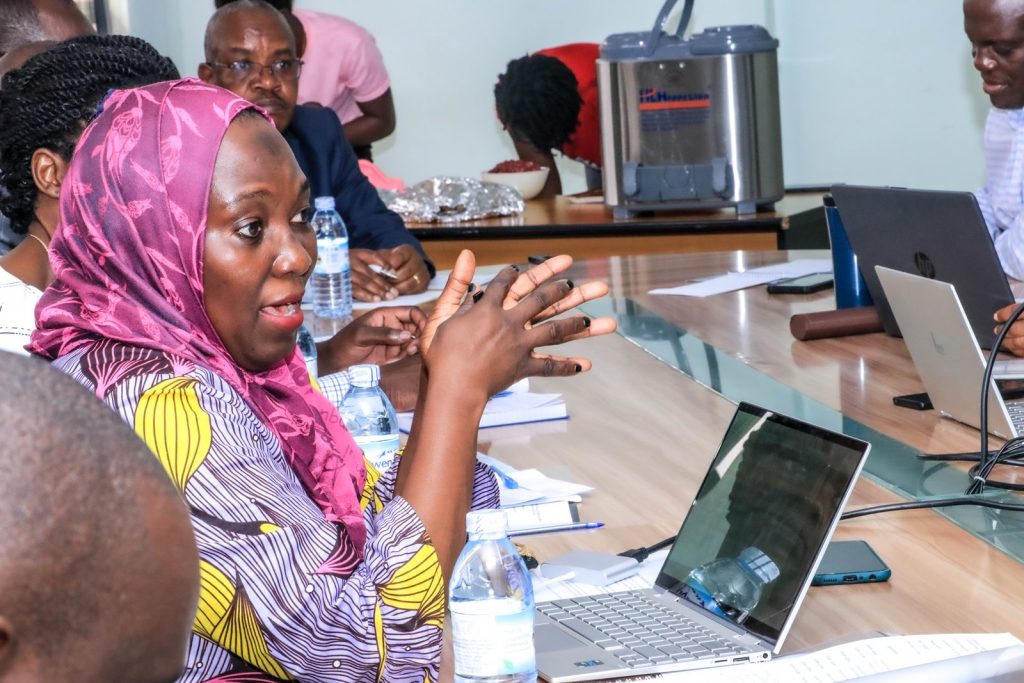
She further stresses that mental health conditions impact individuals throughout their lifespan, affecting quality of life. This includes early childhood, adolescence, pregnancy, adulthood, as well as specific groups such as men in uniform, workplace populations, and the elderly who are at an increased risk for mental illnesses.
Uganda, according to Dr. Hafsa invested USD 25m in 2009 to improve mental health facilities and provide training for health workers, with support from the African Development Bank.
“We have set up several health facilities and trained numerous health workers with the support of the African Development Bank,” says Dr. Hafsa. “However, there have been no studies to assess the impact of these investments. Routine data from the Ministry of Health Management Information Systems (HMIS) indicates an increase in new patients treated for mental health conditions.”
She adds that improvements have been made to the structure of mental health care at all levels to increase the number and mix of mental health professionals.
Despite progress, as noted in the 2018 report of the Sectoral Committee on Health, Uganda still grapples with a significant mental health treatment gap of 85%, leaving only 15% of those in need with access to care. Primary healthcare facilities often refer individuals to higher-level tertiary care, and mental health stigma persists, with limited awareness among the general population, as highlighted by the World Bank.
To bridge the gap, WHO suggests integrating mental health services into PHC systems in countries like Uganda. However, challenges such as prioritization, poverty, cultural differences, health system issues, medication supply, workforce shortages, and inflexibility pose barriers to this integration.
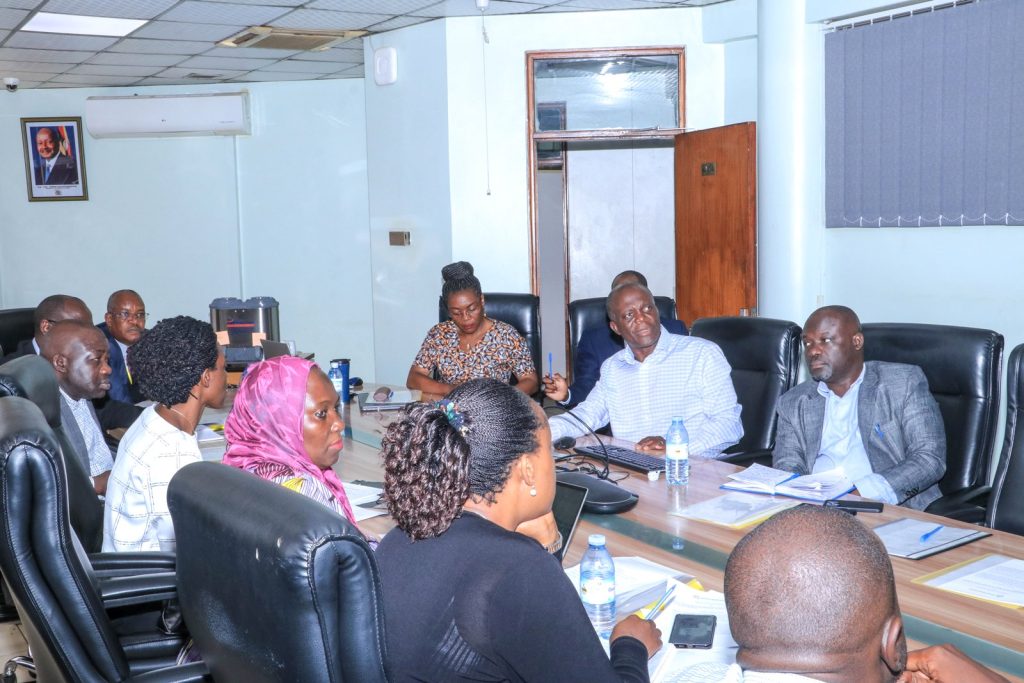
Dr. Nakku acknowledges that mental health has received policy priority in Uganda, but gaps remain in delivering services at primary care, community, and school levels, leaving some populations underserved.
“Mental health problems are risk factors for various public health concerns, such as road traffic accidents and injuries. The role of alcohol and substance use in these issues is significant. Integrating mental health into primary health care may be a cost-effective solution with desirable treatment outcomes. There have been efforts to integration. We now want to assess the extent of integration into PHC, communities and schools in Uganda,” explained Dr. Nakku.
The study aims to evaluate the Knowledge, Attitudes, and Practices (KAP) related to mental health care/services among a total of 1380 individuals, including 45 students/pupils from each of the 33 schools. The assessment will focus on both teachers, learners’ senior women teachers, school nurses and matrons.
Dr. Fredrick E. Makumbi, an Associate Professor of Biostatistics at MakSPH outlined how the study will use qualitative and quantitative data to comprehensively understand mental health integration in Uganda. He provided specifics on the quantitative component, including the study population, sample size, sampling procedure, and data analysis plans. He stressed that the collected data will yield indicators for developing a composite measure of integration, stratified by primary healthcare, communities, and schools.
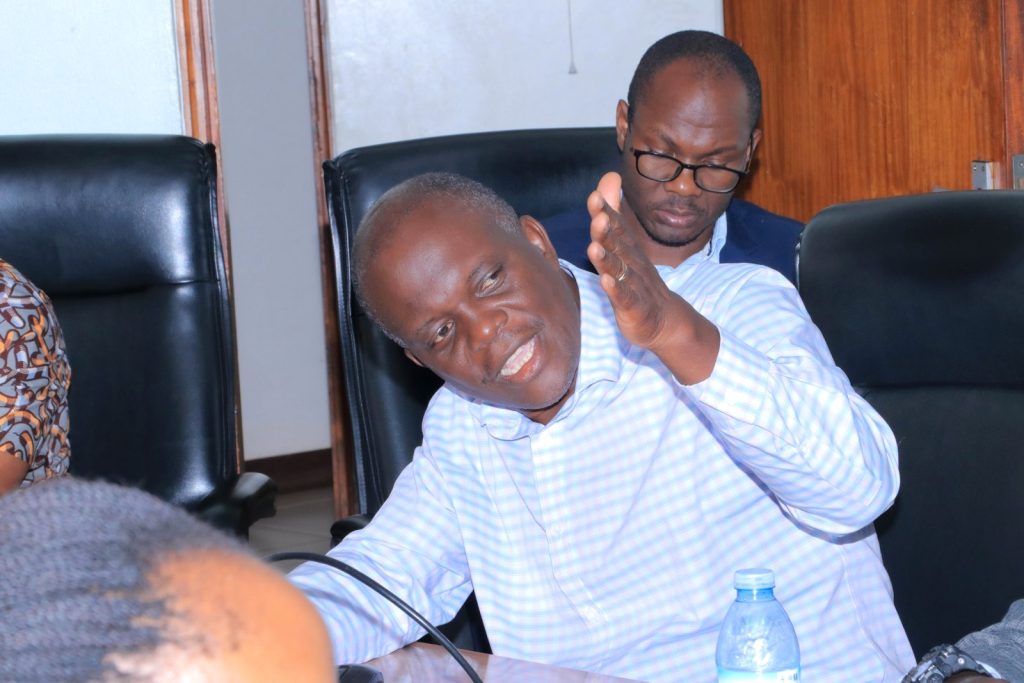
“This study is quite interesting because we have primary health care units as a study population. We shall randomly pick study participants from the villages and schools served by the health care units. We also have plans to construct an Integration of Mental Health Services/Care Composite (IMHC) based on scores from the items/indicators of integration at each of the 3 levels. Each indicator present will be scored ‘1’ else ‘0’, and a total score will be obtained as the sum of all individual indicator scores. The proportion of schools/communities/PHC facilities generated will be based on an agreed cut-off,” explained Dr. Fred Makumbi, a Co-Principal Investigator of the MHISU study.
Professor Rhoda Wanyenze, the Dean and study Advisory team member expressed her enthusiasm for hosting a study highlighting that mental health was “an integral part of our lives.” Accordingly, she stressed MakSPH’s commitment to increasing mental health knowledge through research and expressed her delight in partnering with Butabika Hospital, citing their history of effective teamwork. “The School of Public Health will document the learnings from this study and this study is not a one-off.”

Dr. Wilson Winstons Muhwezi, an Associate Professor in the Department of Psychiatry at Makerere University College of Health Sciences, provided insights on the qualitative component of the study during the discussion. He emphasized the purpose of describing and providing context for integration, and how the study team aims to explain trends, relationships, consistencies, and inconsistencies through the numerous question items they have put together.
“We think if we are able to go to very many sub-populations that we have marked out for purposes of collecting this qualitative data, we shall be able to provide context and meaning according to the data sources themselves so that we have better appreciation of what is going on,” says Dr. Muhwezi.
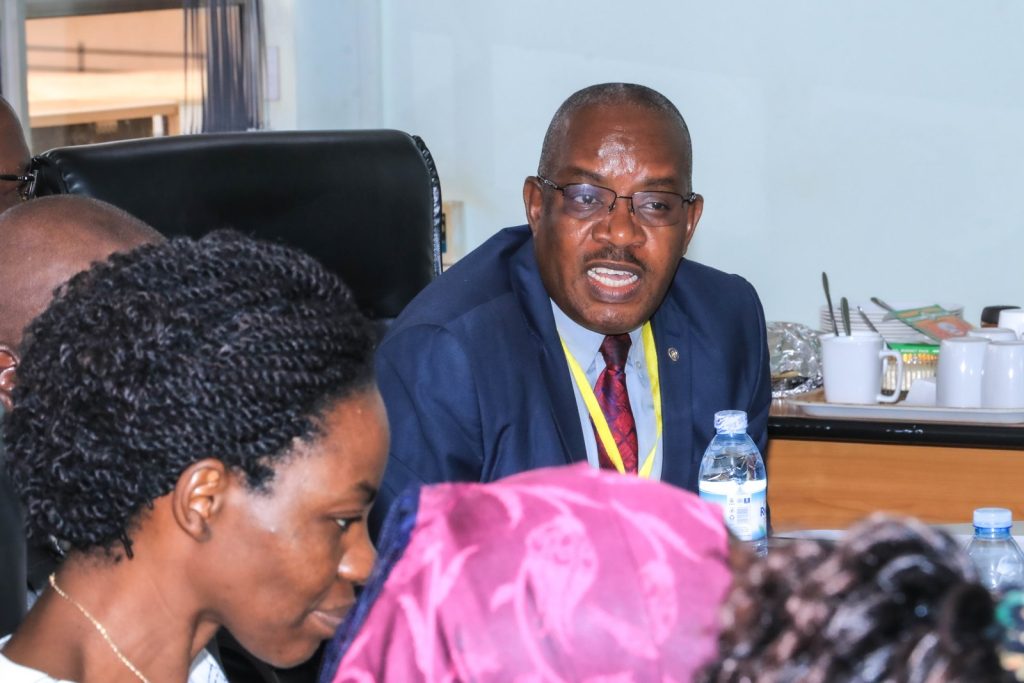
Dr. Muhwezi expressed excitement to be part of a study that recognizes the value of qualitative data in increasing the wealth of knowledge. “As far as I am concerned, I am very excited about this study because rarely do we get to do studies where the qualitative approach is given prominence like the quantitative approach. I think we will get good information when we come from the field.”
Dr. Oyoo Charles Akiya, the Commissioner NCDs-Ministry of Health, expressed the Ministry’s keen interest in the upcoming study on Ugandan mental health during an inception meeting chaired on their behalf. He emphasized that understanding the mental health needs of Uganda will lead to better interventions and contribute to achieving Sustainable Development Goal 3 – Good Health and Well-being.
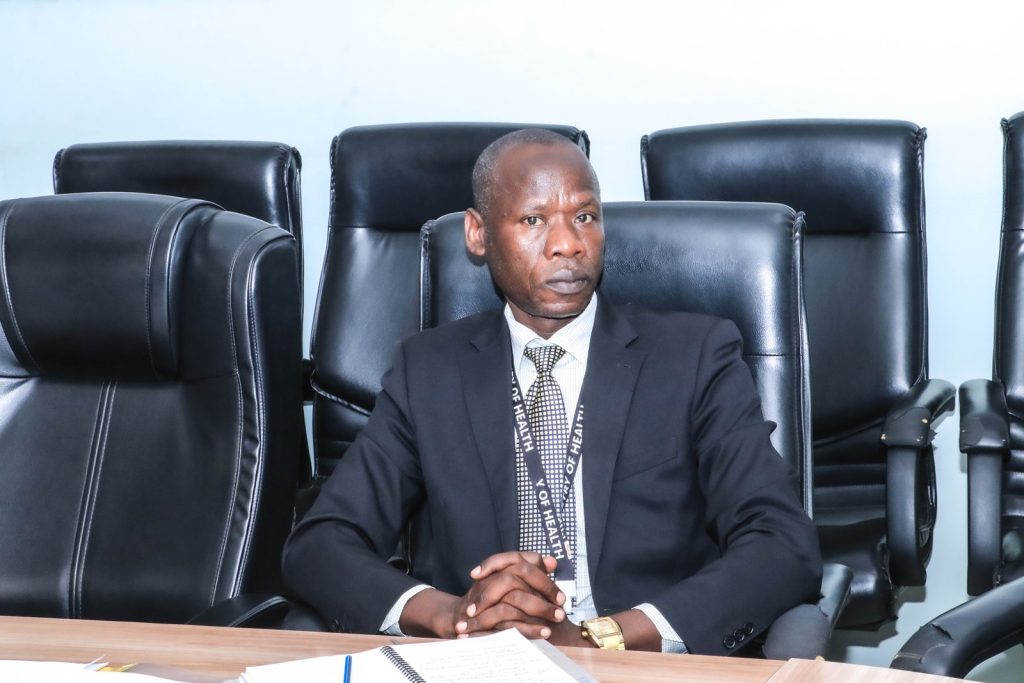
According to Dr. Oyoo, Ministry of Health will support the study team and that it was eager to learn more about the study and how they can be of service. He expressed gratitude to the World Bank, MakSPH, and Butabika Hospital for their contribution to improving mental health care in Uganda.
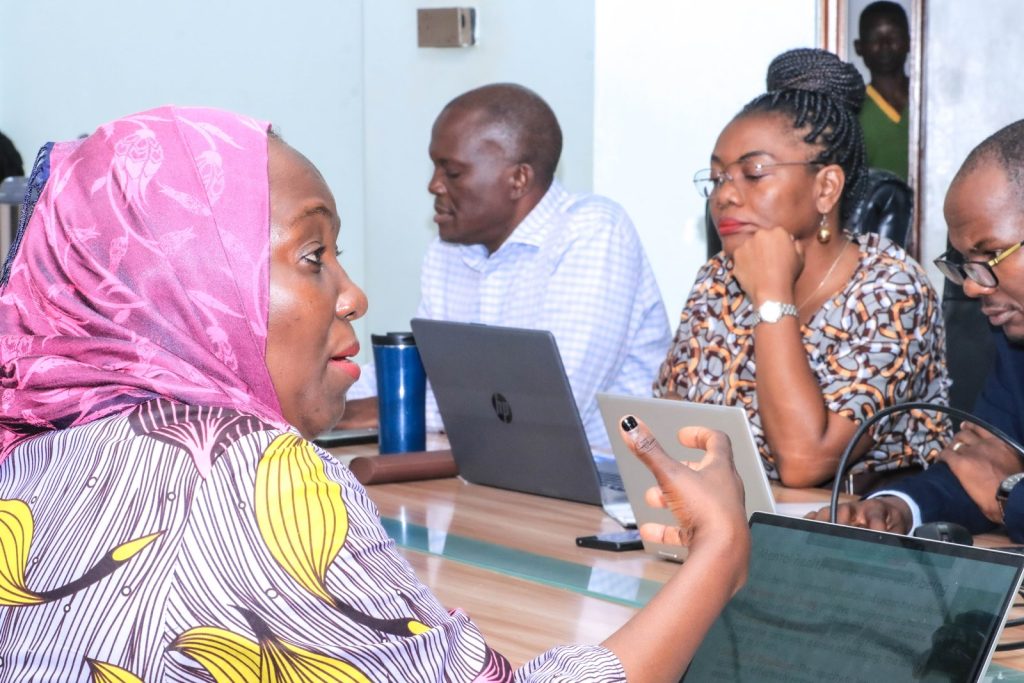
You may like
-


CARTA Fellow Dr. Oporia Appointed to WHO Global Alliance for Drowning Prevention
-
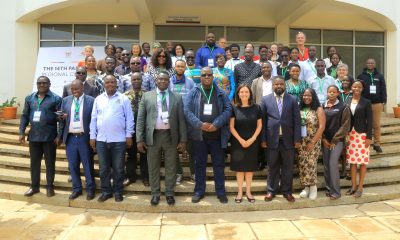

Harmonizing Africa’s Future through Musical Arts Education
-


CARTA Focal Person Dr. Isunju Appointed to MakPress Editorial Board
-
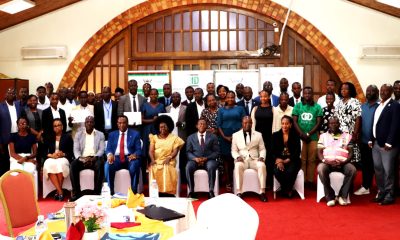

Swedish Ambassador Calls on Uganda to Lead Africa’s E-Mobility Revolution
-


Call for Abstracts: Digital Health Africa 2025
-
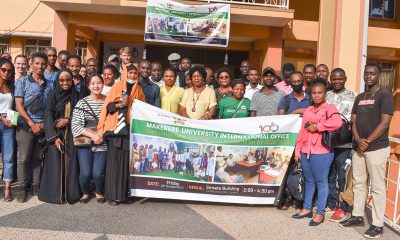

Undergraduate Admission Lists for International Applicants 2025/2026
Health
Call for Abstracts: Digital Health Africa 2025
Published
3 days agoon
July 2, 2025By
Mak Editor
The Digital Health Africa 2025 Conference will provide practical insights in the potential applications of digital technologies, using maternal and child health, as important examples. Topics of interest will include patient registries, safety signals, vaccine use in pregnancy/breastfeeding, labelling of vaccines in pregnancy, emerging infections and antibiotic resistance, telemedicine, pharmacometric modelling, precision medicine, medicines regulation, ethical and legal aspects, and capability enhancement.
Applying an integrated multi-site face-to-face and remote format, this hybrid Conference will use digital tools to allow delegates and speakers from three different regions, South Africa, Uganda and Germany, as well as fully virtual participants to engage with one another. This will offer a nexus for collaboration and networking to promote partnerships among local and international stakeholders as well as capacity building for young scientists. Delegates will have the opportunity to engage with experts from industry, academia, healthcare providers, government and regulatory agencies as well as patient representatives to learn from one another and to gain valuable insights into the latest trends and best practices in digital health.
Abstracts should fit into one of these categories:
- Maternal and Child Health (MCH) & Digital Innovation
- Infectious Diseases & Antimicrobial Resistance (AMR)
- Digital Health Systems & Scaling
- Governance, Data Management & Interoperability
- Artificial Intelligence in Health & Research
- Pharmacometrics & Digital Tools
- Case Studies & Lessons Learned
- Cross-cutting & Strategic Perspectives
Submission deadline: 31st July 2025.
Accepted abstracts will be presented as interactive posters:
- a physical poster presentation at one of the conference sites
- an e-poster (digital version of your physical poster for sharing online)
- a 3-minute recorded presentation to accompany the poster.
Presenters with accepted posters will be offered complementary conference registration.
Submit your poster abstract here: https://forms.gle/aXYHeZSwX2EhEUas5
Health
Emorimor Calls for Makerere to Upgrade Parenting Course
Published
5 days agoon
June 30, 2025By
Zaam Ssali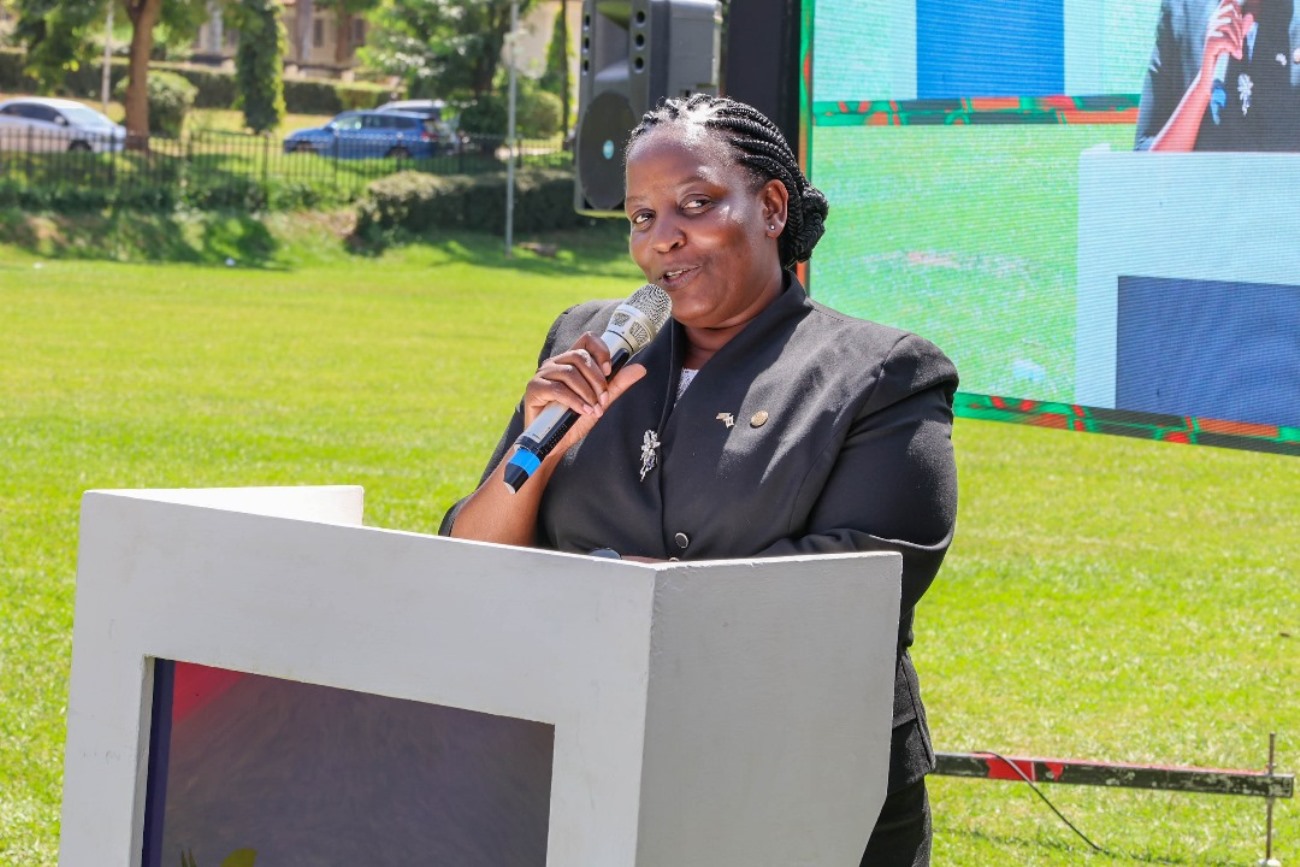
The Iteso Cultural Leader, His Highness Emorimor Papa Paul Sande Emolot, has called on Makerere University to elevate the Science of Designing, Adaptation, and Implementation of Evidence-Based Parenting Interventions course into a fully-fledged programme. This, he argued, would strengthen the capacity of practitioners implementing parenting interventions across Uganda.
Speaking at a graduation ceremony held on 11th June 2025 at Makerere University where 35 practitioners completed the 12-week course, Emorimor Papa Emolot emphasized the transformative power of effective parenting. He urged aspiring parents and advocates of the Parenting for Respectability model to enroll in the course.
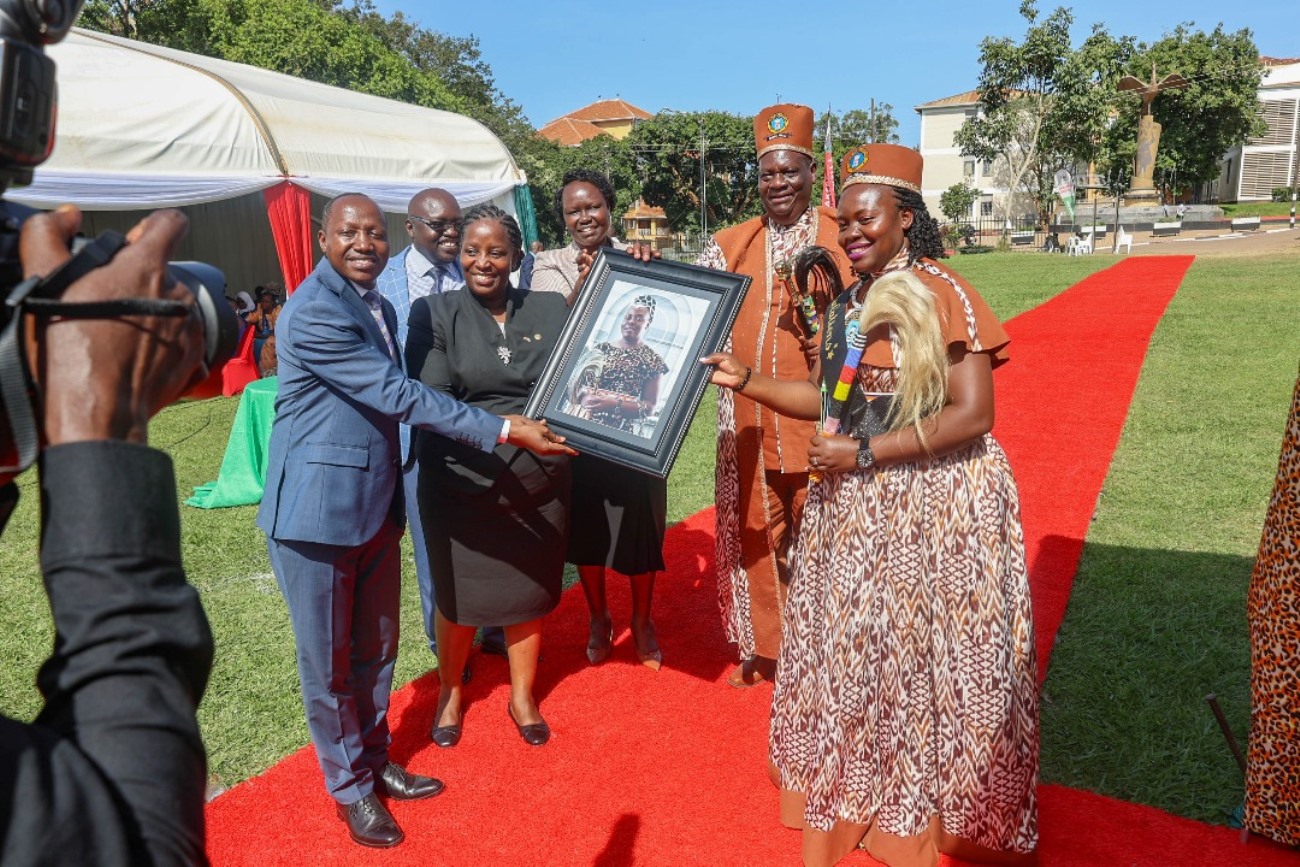
Citing the impact in his own sub-county and village, the cultural leader revealed that over 800 families had already benefited from the programme.
“We now see peace and love in homes where there was once conflict. Without good parenting, you risk raising animals instead of children,” he passionately stated.
He praised the course for equipping practitioners, policymakers, and researchers with the skills needed to design culturally sensitive, evidence-based parenting interventions tailored to Uganda’s context. Among the notable graduates was Her Royal Majesty Juliet Among Emolot Atomeileng Akaliat Toto, who reaffirmed her commitment to advancing family-strengthening initiatives using the skills and knowledge acquired.

Dr. Godfrey Siu, Senior Lecturer and Course Leader at Makerere University, described the course as a timely intervention. During this remarks, Dr. Siu described the event as a significant milestone in advancing the field of evidence based parenting intervention and family strengthening in Uganda.
“This course is meant to empower you as practitioners, policy makers and all those involved in development and implementation of parenting work. It provides both theoretical knowledge and practical tools essential for developing high quality interventions”, Dr. Siu noted. He urged the pioneer group to carry forward the expertise as champions of designing, adaptation and implementation of evidence parenting interventions.

Representing the Permanent Secretary of the Ministry of Gender, Labour and Social Development, Dr. Aggrey David Kibenge, Juliana Naumo, Commissioner for Culture and Family Affairs, said the course supports the government’s agenda to address negative social outcomes affecting families.
“By grounding parenting in research, harmonizing policy with practice, and advocating for equity, we will ensure no family is left behind,” she said. “Cross-sectoral collaboration is key to unlocking transformative change.”
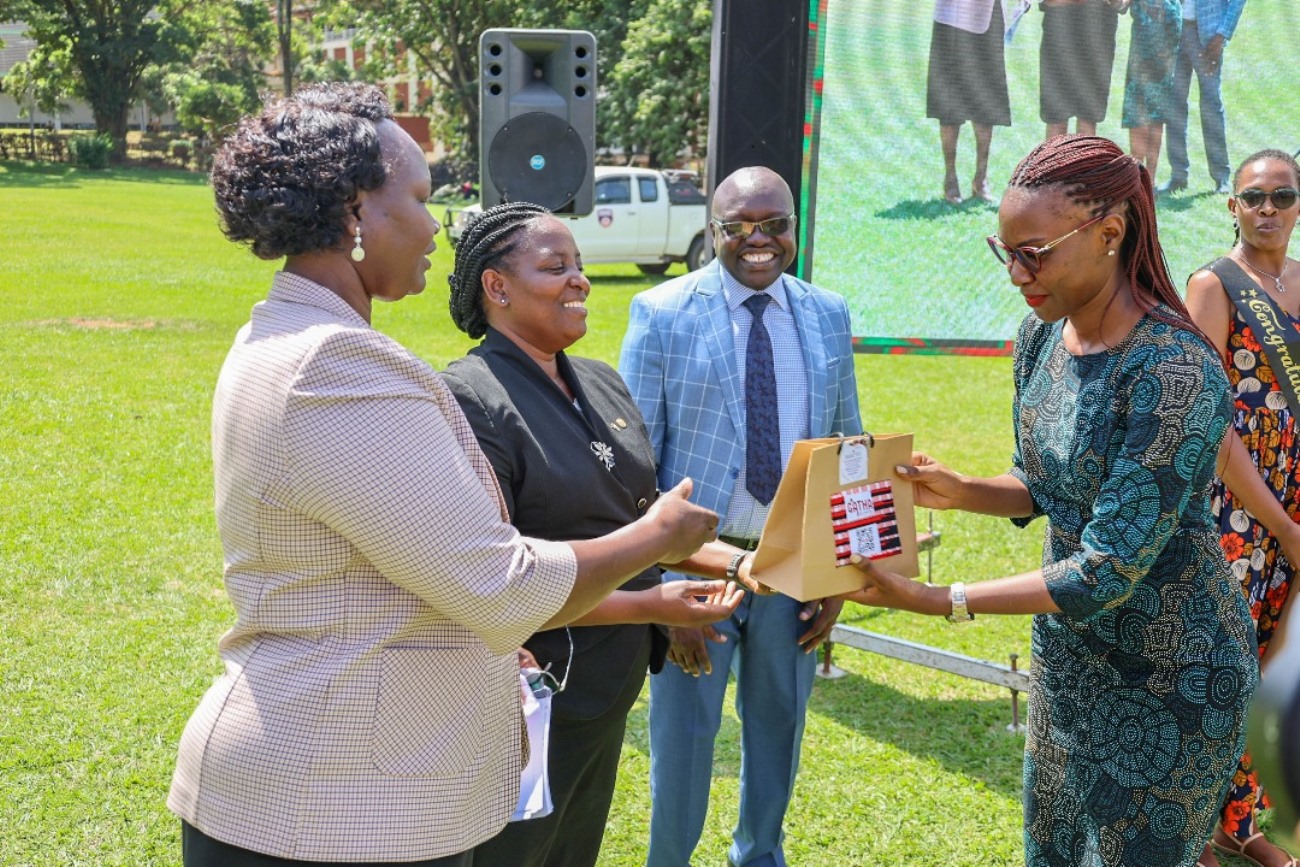
Ms. Naumo highlighted the government’s commitment—both technical and financial—to support outstanding student projects from the course. She stressed the importance of equipping professionals with the skills to bridge gaps between research and practice for consistent, high-quality parenting support across Uganda. While delivering the Vice chancellors speech by Dr. Helen Nambalirwa, Principal of the CHUSS, Prof. Barnabas Nawangwe commended the graduates as a beacon of hope.
“At a time when parenting faces challenges like digital distractions, changing societal norms, and a rising mental health crisis, Makerere reaffirms its support for interventions that drive the societal transformation we desire,” Nawangwe stated.
Prof. Richard Idro, Deputy Principal of the College of Health Sciences, acknowledged the growing parenting challenges in Uganda and the region, adding that the course was a major step towards standardizing parenting interventions nationwide.

He applauded the Child Health and Development Centre (CHDC) for leading this paramount and critical initiative.
Mr. Hosea Katende, Course Administrator at CHDC, emphasized the importance of integrating systematic methods, ethical principles, robust evidence, and collaboration to create lasting impact in parenting.
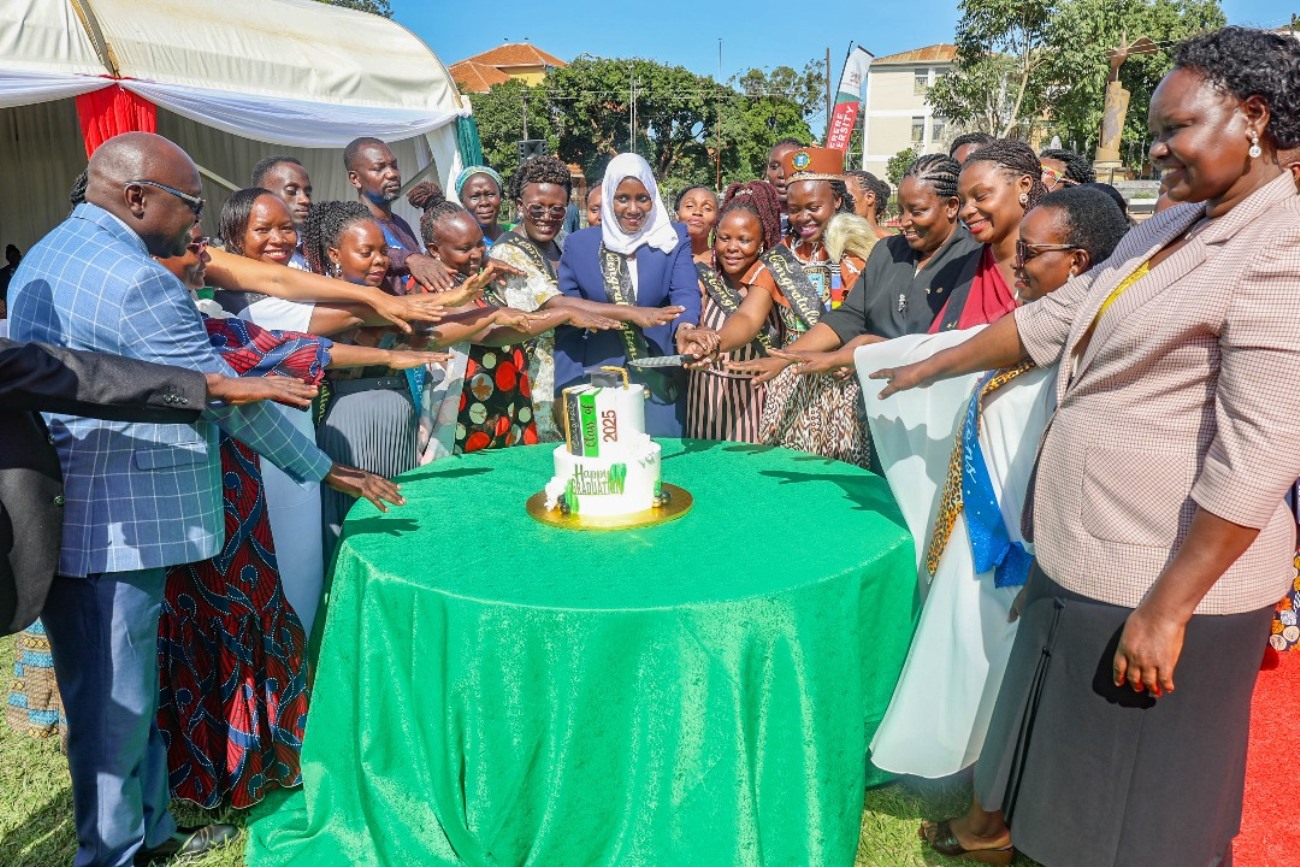
Dr. Aggrey Dhabangi, Lecturer at CHDC, representing Dr. Herbert Muyinda, Director of CHDC, acknowledged the contributions of partners such as the ELMA Foundation and Echidna Giving for their financial and capacity-building support. He also appreciated the Ministry of Gender, Labour and Social Development, among other stakeholders, for their technical guidance in the programme’s successful implementation.
Dr. Dhabangi extended gratitude to cultural institutions, especially the Kingdom of Teso, and acknowledged growing collaborations with other cultural institutions such as the Kingdom of Acholi, in the shared mission of building strong families as the foundation of Uganda’s future.

He extended his heartfelt gratitude to cultural institutions, especially the Kingdom of Teso, and others kingdoms such as the Kingdom of Acholi, in building Uganda’s future through creating strong families. Nuruh Mbalyowere, a Rehabilitation and Reintegration Officer with the Uganda Prisons Service, was honored for developing the best parenting intervention titled “Parenting Behind Prison Bars.” She expressed her intention to apply the knowledge gained both at home and in her workplace.
Health
MakSPH, DJC Launch Short Course on Health Communication
Published
2 weeks agoon
June 20, 2025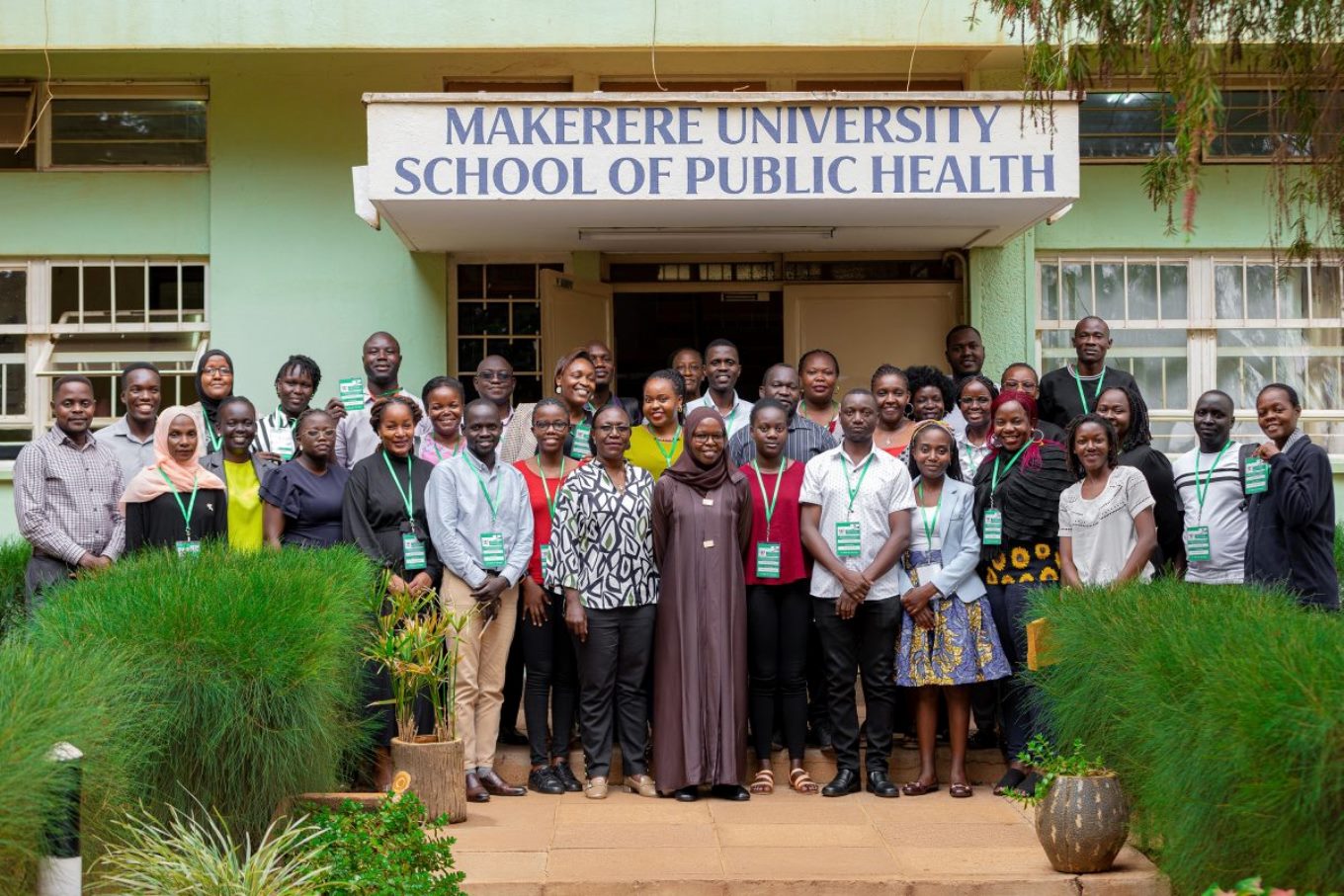
By Okeya John and Primrose Nabankema
The intensive one-month course, running for the first time from June 5 to July 24, 2025, is jointly offered by Makerere University School of Public Health (MakSPH)’s Department of Community Health and Behavioural Sciences (CHBS) and the Department of Journalism and Communication (DJC) at the School of Languages, Literature, and Communication (SLLC), co-designed in 2024 with support from the Rockefeller Foundation through Amref Health Africa.
It seeks to equip healthcare providers at the community level, public health and environmental health practitioners, communication specialists, health educators, community development officers, social scientists, and policy makers, among others, with strategic communication skills to improve public health messaging, strengthen community engagement, and support evidence-based interventions, ultimately empowering participants to effectively engage communities and improve population health outcomes across Uganda and the region.
Launching the course, the heads of the Department of Journalism and Communication and the Department of Community Health and Behavioural Sciences noted that participants who complete the short course will gain practical tools to influence behaviour change, build trust, and deliver timely, accurate, and relevant health information to the communities they serve. The first cohort attracted more than 60 applicants, with 36 reporting for the opening in-person session on June 5, 2025, at MakSPH in Mulago. Between now and July, participants will undergo a hands-on, multidisciplinary learning experience within the Certificate in Health Communication and Community Engagement program, which combines theory and practice.
Among the participants in the first cohort of the certificate course, designed as a pilot for the anticipated Master of Health Promotion and Communication to be jointly offered by the two departments at Makerere University, is Ms. Maureen Kisaakye, a medical laboratory technologist specialising in microbiology and antimicrobial resistance (AMR), and currently pursuing a Master’s in Immunology and Clinical Microbiology at Makerere. She is driven by a passion to help reverse the rising tide of AMR, a growing global health threat where drugs that once worked are no longer effective. Kisaakye is particularly concerned about common infections, like urinary tract infections, becoming increasingly resistant and harder to treat.
“I enrolled in this course because I’m an advocate against antimicrobial resistance, and it came at a time when I needed to deepen my knowledge on how to implement our projects more effectively and engage with communities. The experience has broadened my understanding of AMR and its impact on society, and strengthened my passion for community-driven health initiatives and advocacy,” Kisaakye said, explaining why she enrolled for the short course.

Kisaakye’s work in antimicrobial resistance extends beyond the lab. Having earned her degree in medical laboratory science from Mbarara University of Science and Technology, she founded Impala Tech Research in 2024 to drive impact and save lives. She has led grassroots AMR campaigns that integrate antimicrobial stewardship with water, sanitation, and hygiene (WASH) education in underserved urban communities, including the informal settlements in Kampala. She also has since designed peer-led initiatives that empower university students as AMR Champions, building a network of informed youth advocates. Kisaakye believes the health communication course will sharpen her ability to design and deliver impactful, community-centred interventions in response to the growing threat of drug resistance.
“The department collaborates with many partners within and beyond the University, including the School of Public Health, where we are working to develop the subfield of health communication and promotion. Our goal is to train specialists in this area and build a community of practice, something we have each been doing in our own spaces. There’s a lot of work ahead, and COVID-19 showed us just how urgently we need a generation trained to do this kind of work, and to do it very well,” said Dr. Aisha Nakiwala, Head of the Department of Journalism and Communication, during the opening of the short course on June 5.
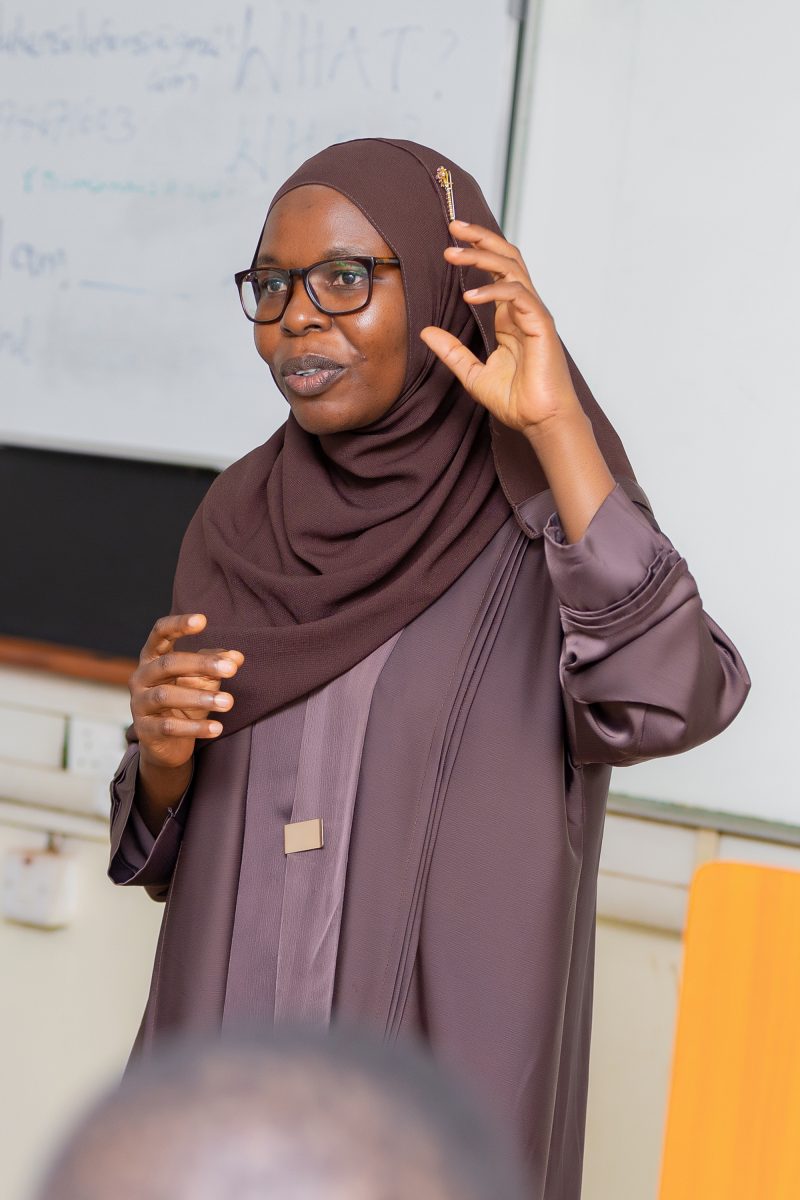
She assured participants they were in good hands and underscored the importance of the partnership between the Department of Journalism and Communication and the School of Public Health, describing it as a vital collaboration that brings together strategic communication and public health expertise. This dynamic, multidisciplinary approach, she noted, is essential to developing practical solutions that empower communities, strengthen health systems, and ultimately improve livelihoods.
The course offers a hands-on, multidisciplinary learning experience, with participants intended to explore key modules including Health Communication and Promotion, Risk Communication, Smart Advocacy, Community Mapping, Community Mobilisation and Empowerment, and Strategies for Community Engagement. The course combines theory with real-world application, and its assessment includes a field-based project and a final exam.
“You are our first cohort. We are seeing the fruits of our efforts in bringing this short course to life. It was born out of a joint initiative to develop a Master’s programme in Health Promotion and Communication,” said Dr. Christine Nalwadda, Head of the Department of Community Health and Behavioural Sciences. “We carried out extensive consultations with our different key stakeholders during the process and discovered a real need for such a course. It was the stakeholders who even named it; this course name didn’t come from us.”
For Kisaakye, by the end of the course in July, she hopes to have sharpened her skills in health promotion and strategic communication, particularly in crafting targeted messages that help individuals and communities effectively respond to threats such as antimicrobial resistance. She also aims to gain practical experience in designing, implementing, and evaluating community health initiatives that can strengthen her advocacy and drive lasting impact.
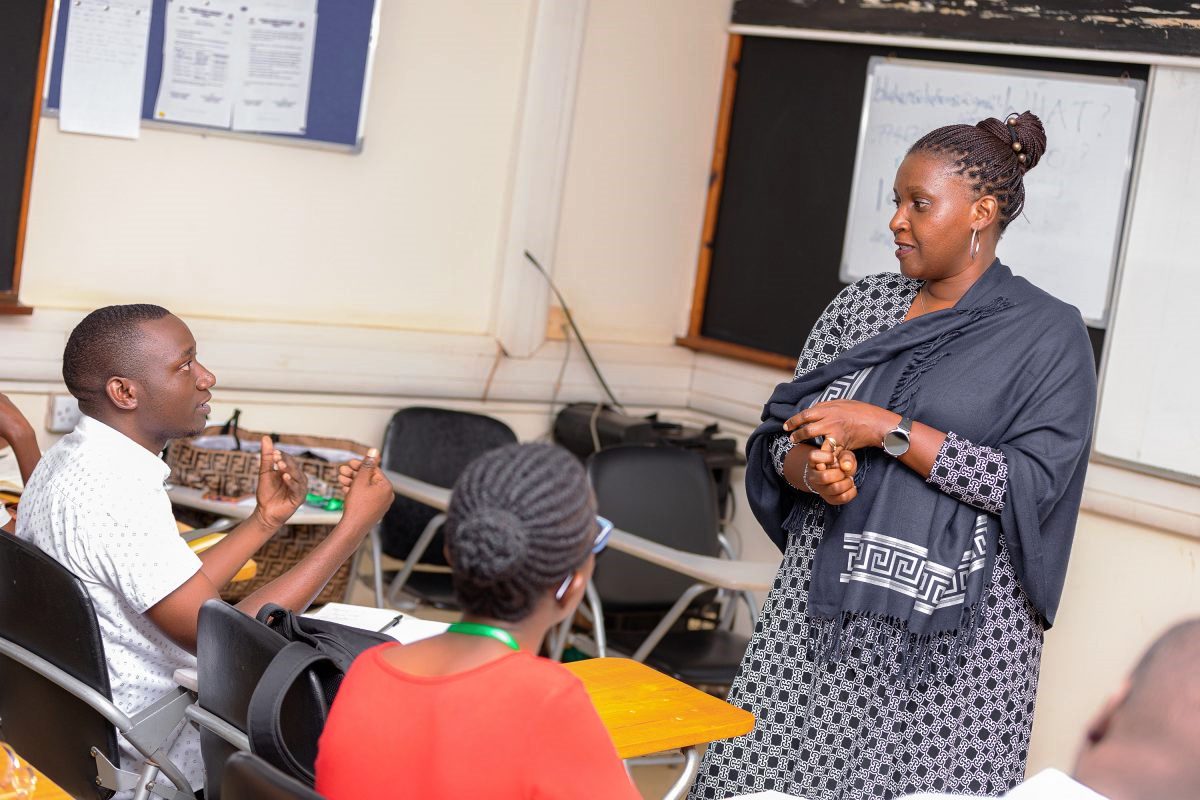
Trending
-

 Education1 day ago
Education1 day agoAdmission List to Bachelor of Education External (BED) 2025/26 -Private Sponsorship
-

 General1 week ago
General1 week agoMature Age Scheme Exam Results for 2025/2026
-

 General2 weeks ago
General2 weeks agoFreshers’ Joining Instructions 2025/2026
-

 General4 days ago
General4 days agoUndergraduate Admission List Self Sponsorship Scheme 2025/2026
-

 General2 weeks ago
General2 weeks agoMastercard Foundation Board pays its inaugural visit to Makerere University
